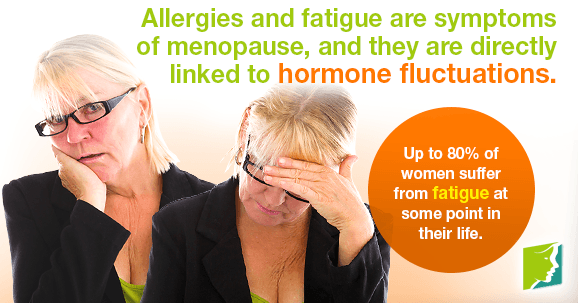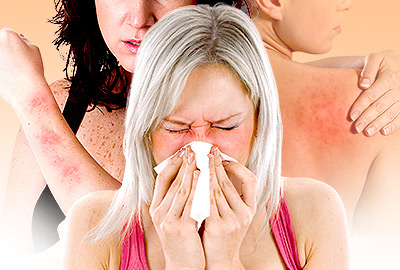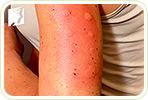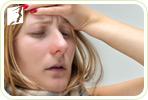Allergies and fatigue are linked because allergies typically cause fatigue. Fatigue tends to increase more during the menopause transition, and occasionally, allergies do as well. The immune system and hormones are linked, so when hormone levels fluctuate during menopause, women are more susceptible to developing allergies or experiencing more intense symptoms to current allergies. Allergic reactions occur when the immune system mistakes a substance as being harmful and reacts to protect against damage. It is important to be aware of these menopausal symptoms and know how to prevent and manage them.
Menopausal Allergies
The immune system is linked with hormones. Consequently, when hormones fluctuate, you are more susceptible to experiencing allergic symptoms. Sometimes, allergies develop early on during childhood, but in other cases, they can develop later in life, specifically during menopause.
Common allergens that have been known to irritate people include animal dander, dust, seafood, nuts, pollen, and certain medications.
Symptoms of menopausal allergies include:
- Fatigue
- Rashes
- Itchy eyes
- Sneezing
- Congestion
- Hives
- Cramping
- Swelling
- Difficulty breathing
Menopausal Fatigue
Fatigue is one of the most commonly reported symptoms of menopause, affecting up to 80% of women at some point in their life. Fatigue is defined by the overall feeling of weakness, exhaustion, and decreased energy levels. Common symptoms of menopausal fatigue include:
- Headaches
- Apathy
- Irritability
- Difficulty concentrating
Hormone fluctuations are the leading cause of menopausal fatigue. Estrogen and progesterone are responsible for making the body feel sleepy and maintain proper rest. Subsequently, when these hormone levels decrease during menopause, women have more difficulty falling asleep. Other menopause symptoms - like allergies and night sweats - can contribute to fatigue. These symptoms are also a result of hormonal imbalance.
What Can You Do?
Learn more about tips to avoid menopausal fatigue and allergies that can be incorporated into your daily life.
Get an allergy test. This will help determine exactly what you are allergic to. Then, you can try to avoid those allergens as much as possible. This can be especially helpful if new, unknown allergies have surfaced during the menopause transition.
Eat healthy. Eating small, healthy meals and snacks every couple of hours helps keep blood sugar levels up and maintain energy. Almonds, apples, and yogurt are all healthy snacks that provide an energy boost. Try to include fiber and protein in meals because whole grains provide physical energy, and the amino acids in proteins help with muscle repair.
Exercise. Studies have shown that exercising five times a week increases energy levels by as much as 20%. Exercising also provides other health benefits like reduced stress, improved moods, and more efficient body functions. Cycling, walking, swimming, and yoga are all excellent low-impact workouts that are easy to incorporate into a daily routine.
Allergies and fatigue are symptoms of menopause, and they are directly linked to hormone fluctuations. Hormones play a part in regulating the immune system. Consequently, when hormones fluctuate, women become more susceptible to developing allergies. It is important to have an allergy test and maintain a healthy lifestyle to prevent and manage menopausal allergies and fatigue.
Sources
- National Health Service UK. (2013). Self-help tips to fight fatigue. Retrieved November 4, 2014, from http://www.nhs.uk/Livewell/tiredness-and-fatigue/Pages/self-help-energy-tips.aspx
- National Health Service UK. (2013). Why am I tired all the time? Retrieved November 4, 2014, from http://www.nhs.uk/Livewell/tiredness-and-fatigue/Pages/why-am-I-tired.aspx
- National Institutes of Health. (2014). Fatigue. Retrieved November 4, 2014, from http://www.nlm.nih.gov/medlineplus/fatigue.html




